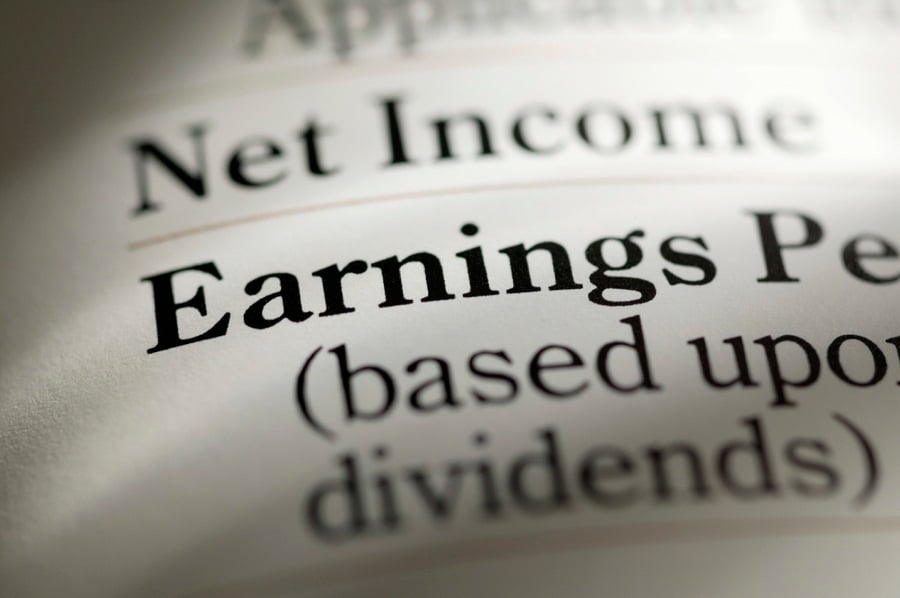Equity bulls counting on strong earnings to arrest the steep decline in U.S. stocks have something to worry about: These days, nothing has been good enough to please financial markets.
"Early in the season, any news is bad news," writes Christopher Harvey, head of equity strategy at Wells Fargo Securities.
Twenty-eight members of the S&P 500 Index had reported their third-quarter results heading into this week. Even companies that posted better-than-expected earnings or sales have underperformed the market by 1.8% and 2.3%, respectively, in the session following their releases, Mr. Harvey noted.
It's a repeat of the early reaction to first-quarter results, which were plagued by cautionary tales that the tax-juiced profits would be as good as it gets. Most memorably, Caterpillar Inc.'s management warned this would be their "high water mark for the year."https://cdn-res.keymedia.com/investmentnews/uploads/assets/graphics src="/wp-content/uploads2018/10/CI1175191015.PNG"
Market Leadership in Doubt
But in April, the punishments meted out on companies that managed to exceed expectations were small.
JPMorgan Chase & Co.'s underperformance on Friday was anything but. Shares of the biggest U.S. bank by market capitalization fell more than 1% despite better than anticipated top- and bottom-line performance. The S&P 500 Index gained 1.4%.
Regional banks may be at the core of the current woes in the space. The SPDR S&P Regional Banking ETF tumbled 6% last week as PNC Financial Services Group's combination of weak loan growth and high costs raised concerns about the future for small and big banks alike.
"The bank stocks have not been reacting well to earnings announcements for the past several quarters," wrote Richard Bernstein, founder of Richard Bernstein Advisors. "This seems to suggest that investors are more worried about the flattening of the curve, potential inversion, and the end of the cycle than they are on short-term earnings announcements."
The worry for the broader market is that this dynamic undercuts the potential for financials to assume market leadership amid rising interest rates, which have dented the attractiveness of owning long-duration, high-growth stocks in the technology and communication services sectors.
"The fact that JPM was cautious on its 2019 outlook and that the sector ETF, XLF, barely closed in positive territory after getting pounded during the week is among the more worrisome signs that we may not be fully done with the correction," said Jay Pelosky, chief investment officer and co-founder of TPW Investment Management.
(More: Market slide awakens nervous investors, puts advisers back to work)
Nothing Matters
Granted, many of these curious reactions to earnings reports did come during a stretch in which the S&P 500 Index suffered its biggest one-week drop since March and selling pressure bordered on chaotic.
"Normal stock reactions are literally pitched in the garbage when events like last week happen," said Michael Antonelli, institutional equity sales trader at Robert W. Baird & Co. "Nothing ends up mattering to a daily price performance: not CEO talk, not research, not earnings, nothing. They just start moving on fear and greed."
Although recent retreats may not be indicative of changes in the fundamentals, some of the underlying sources of support for U.S. stocks have weakened.
Not only have interest rates risen to higher levels, but signs that cost pressures are crimping corporate profitability have swelled. And every passing day brings investors closer to a time where the growth in after-tax margins will no longer be flattered by the one-off effects of a lower corporate tax burden.
"The earnings of PPG Industries and Fastenal were fundamentally more important than JPMorgan for the price action last week," said Mayank Seksaria, chief macro strategist at Macro Risk Advisors. "Despite beats, the margin pressure via trade and oil are new pieces of information that should matter to markets beyond the short-term technical factors of last week."
Investors will be watching company guidance on the impact of rising costs on profitability as a key gauge of whether U.S. stocks have lost their immunity to factors driving global equity softness in 2018, the strategist added.
But bulls can still take heart: After investors finished fretting during the first-quarter reporting season, stocks resumed their uptrend in May before marching to fresh all-time highs in August on the heels of another round of robust results from Corporate America.
"We expect the Q3 earnings season to be met with a skeptical undertone from investors, and high bars for earnings reports to be rewarded with share price gains," said Naufal Sanaullah, chief macro strategist at EIA All Weather Alpha Partners. "Given the volatility shock last week, which has driven the S&P's earnings yield up by about a full percentage point from its lows, we believe that earnings season will soon transition to a bullish catalyst in a week or two, as buyback programs turn back on en masse."
(More: How markets will likely react to a change in congressional power)







